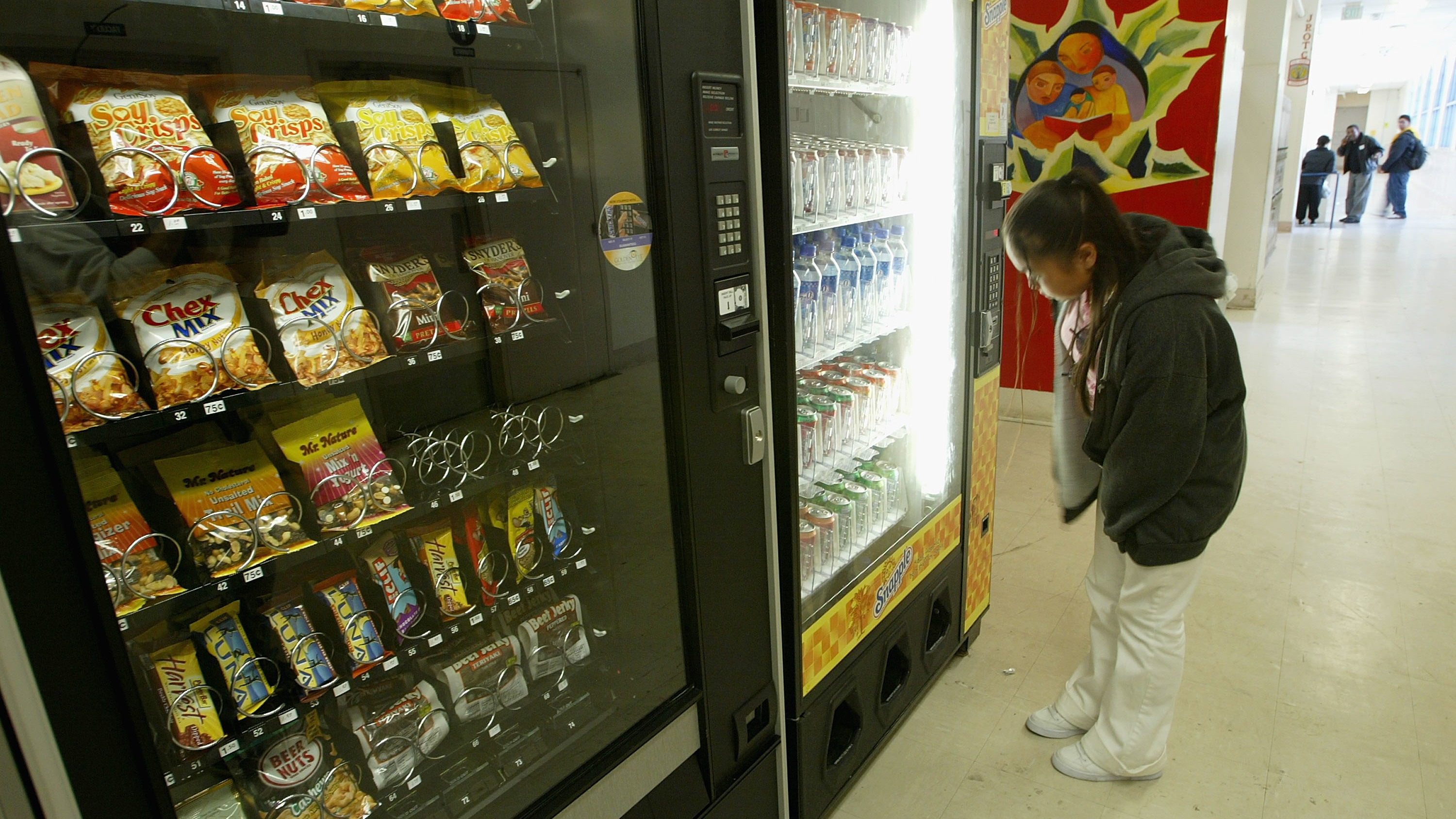A Half-Minute Wait For Junk Food Is Enough To Change Someone's Vending Machine Pick
Vending machines cater to immediate food needs. We're hungry now, dammit—if we had more time, we'd go out for a real meal. But it's immediacy and convenience that sustain America's 1.3 million vending machines. (Well, that and our insatiable affection for Cheetos and Hostess snacks.) But would we choose granola or fruit snacks if vending machines stocked them? Maybe with a little prodding.
A recent Rush University Medical Center study funded by the National Institutes of Health and reported on by my favorite news source, Vending Market Watch, customized thousands of vending machines to test whether discounts, delays, or both would motivate consumers to choose healthier snacks from the machines. The jury-rigged machines were equipped with a "delay bar" separating unhealthy snacks from healthy snacks. The healthy snacks were dispensed immediately after purchase; unhealthy snacks required a 25-second wait, which was counted down on an LED screen. During that 25-second countdown, customers could change their order to a healthier snack if they became impatient. The researchers dubbed this technology the DISC system, an acronym for Delays to Improve Snack Choices.
The results of the more than 32,000 vending machines tested were clear: We'd rather have healthy snacks now than unhealthy snacks later. "Our findings with the DISC vending machine system suggests that relatively brief time delays can nudge people to purchase healthier snacks at least some of the time," lead researcher Brad Appelhans told Vending Market Watch. "Having to wait for something makes it less desirable."
Though the delay didn't have an overwhelming effect—it increased purchases of healthy snacks just 2 to 5 percent, depending on the machine's location—that's still roughly the same effect as a 25-cent discount on healthy snacks. And for vending machine operators who don't want to lose money by offering discounts, a delay could be a way to encourage healthy snacking without messing with their profits. The strongest influence to buy a healthier snack was a tax on unhealthy snacks combined with a 25-second delay, researchers found.
"Vending machines are conveniently located, have a broad reach and are the most prevalent source of high-calorie, nutrient-poor foods in the U.S.," Appelhans told Vending Market Watch. "They are not going anywhere any time soon, so this new vending machine system could be an effective and financially viable strategy that can shift individuals' choices towards healthier options." The DISC system is so promising, in fact, that its creators have applied for a patent. Their research finally confirms the old truism: An apple in the hand is worth two Bugles in the bush.
